The Misaki Port stretches before your eyes in a seemingly endless landscape. It’s nothing but dozens of fishing boats here, occasionally a few seagulls and a handful of human souls working busily around the boats. The rest is just the ocean: the wide, endless, profound source of life and income for this small town’s community. Here is Misaki, the hometown of the Misaki Maguro, one of Japan’s most delicious and high-quality tuna brands. This small town on the tip of the Miura Peninsula in Kanagawa Prefecture lives hand in hand with the kingfish, surviving off it and living for it.
“Misaki has long been known for its superb quality maguro,” says Masa Ishibashi, third generation managing director of Misaki Megumi Suisan, a local fishery with a history of over 50 years of catching some of the port’s best tuna. His company, like many others in the town, has the so-called mekiki, he proudly explains, “an eye” for the best fish. It’s a skill they have acquired through years of experience processing it, and of course eating it.
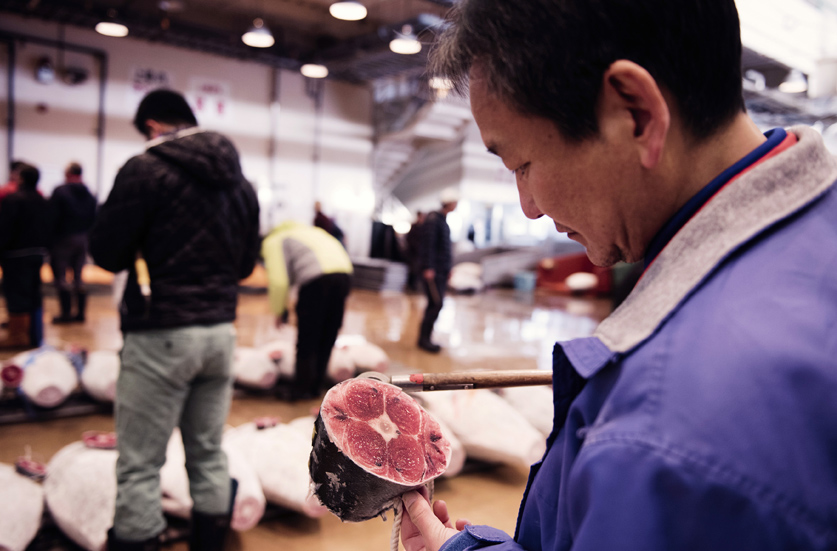
“We know what really good quality maguro looks and tastes like,” he says, and everything about him tells you that he definitely knows what he’s talking about.
From Misaki to the world
Founded by Ishibashi’s grandfather in 1968 under the name of Ishibashi Suisan, the company specializes in processing and selling maguro and other fresh fish and marine products to supermarkets, Japanese restaurants, and hotels in the wider Tokyo metropolitan area, as well as other regions in Japan. In recent years, since Masa Ishibashi joined the company, Misaki Megumi also began exporting fish overseas, selling their best maguro to a number of countries in Asia and the Pacific Rim, including Singapore, Hong Kong, Vietnam, Malaysia, and Australia, in addition to the U.S.A.
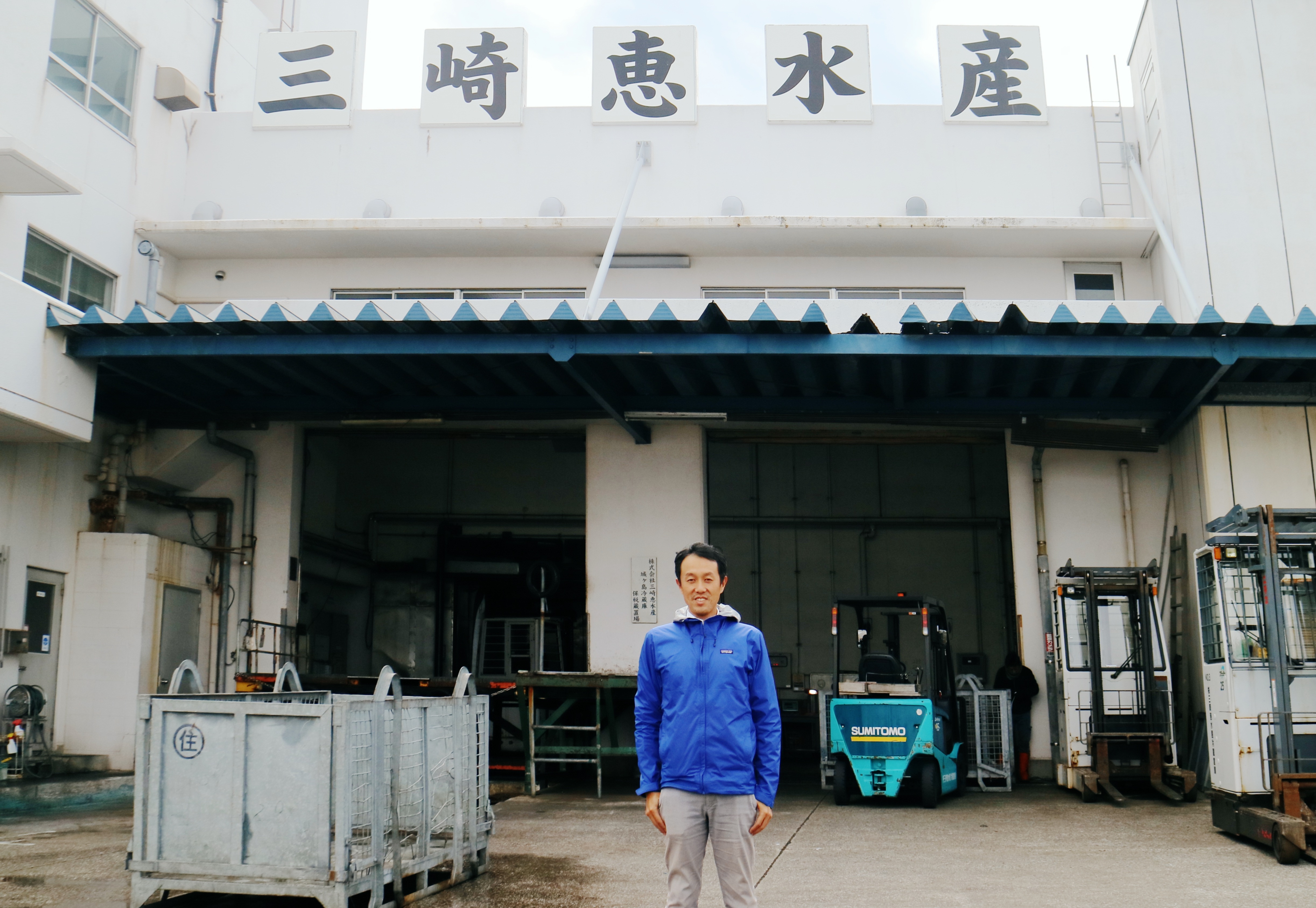
Ishibashi, however, frowns when you call his maguro tuna and argues that it is not the same.
“Foie gras is foie gras in any language,” he smiles persuasively. “There is no need to translate it — it’s a brand on its own and everyone knows what it is. It is my dream to promote our fish, the maguro, in the same manner. We're not selling tuna. We're selling maguro.”
'We know what really good quality maguro looks and tastes like.'
With a solid background in advertising and marketing, Ishibashi knows more than a few things about branding. He also knows when a product is worth promoting and when it’s not and that in this case, his task is more important than any other work he’s ever been in charge of. Now, he is not only selling fish, he’s promoting Japan, too.
“People love our Japanese fish wherever we serve it,” he says. “And yet, there is still a lot of room for improvement as far as both recognition and understanding go. Many people abroad still don’t understand that in the case of our maguro ‘frozen’ isn’t something negative; to the contrary, it means more than fresh.”
Understanding ‘super frozen maguro’
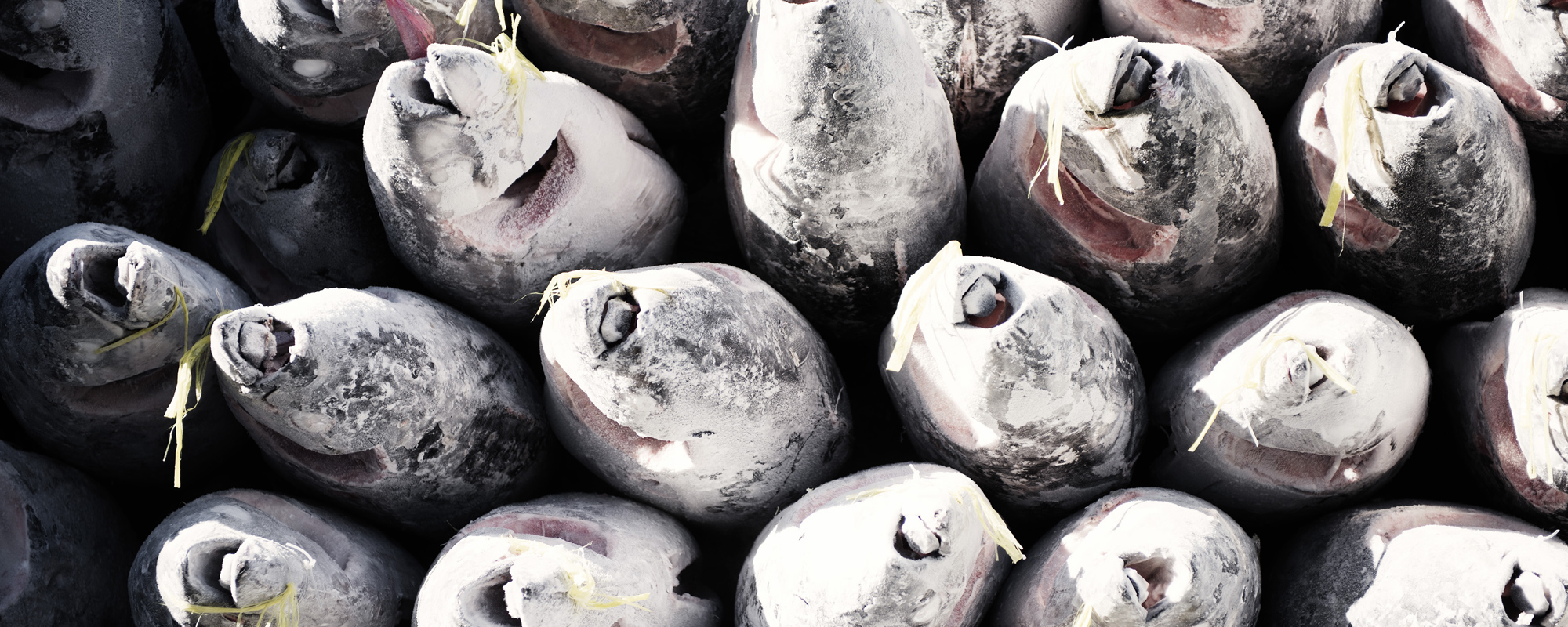
Misaki Megumi Suisan’s maguro is known as “super frozen tuna,” fish that is frozen at minus 60 degrees as soon as it’s caught. This way of processing maguro, which is historically common in Misaki, is one of the best ways to preserve the fish fresher than when eaten right after it’s been caught. It preserves its best taste no matter how long it takes until you actually eat it, Ishibashi explains.
With fresh fish, from the moment it’s caught to the time it ends on customers’ tables, it may take a day or two even due to transportation. That naturally degrades the taste to a certain degree. The super low-temperature freezing method, however, keeps the fish fresh until it's defrosted right before it is served to customers, thereby preserving its best taste.
With Ishibashi devoting years to promoting the understanding of the many differences in maguro quality and the super-frozen method through various methods, including actively attending overseas fishery exhibitions and advancing overseas export, he is gradually observing stable achievements and business growth.
“I’m spending half of the year traveling abroad,” Ishibashi laughs, counting on his two hands all the overseas business trips he’d gone to in just the past couple of months. The maguro market abroad is expanding and there is a growing demand for high-quality Japanese produce, he says.
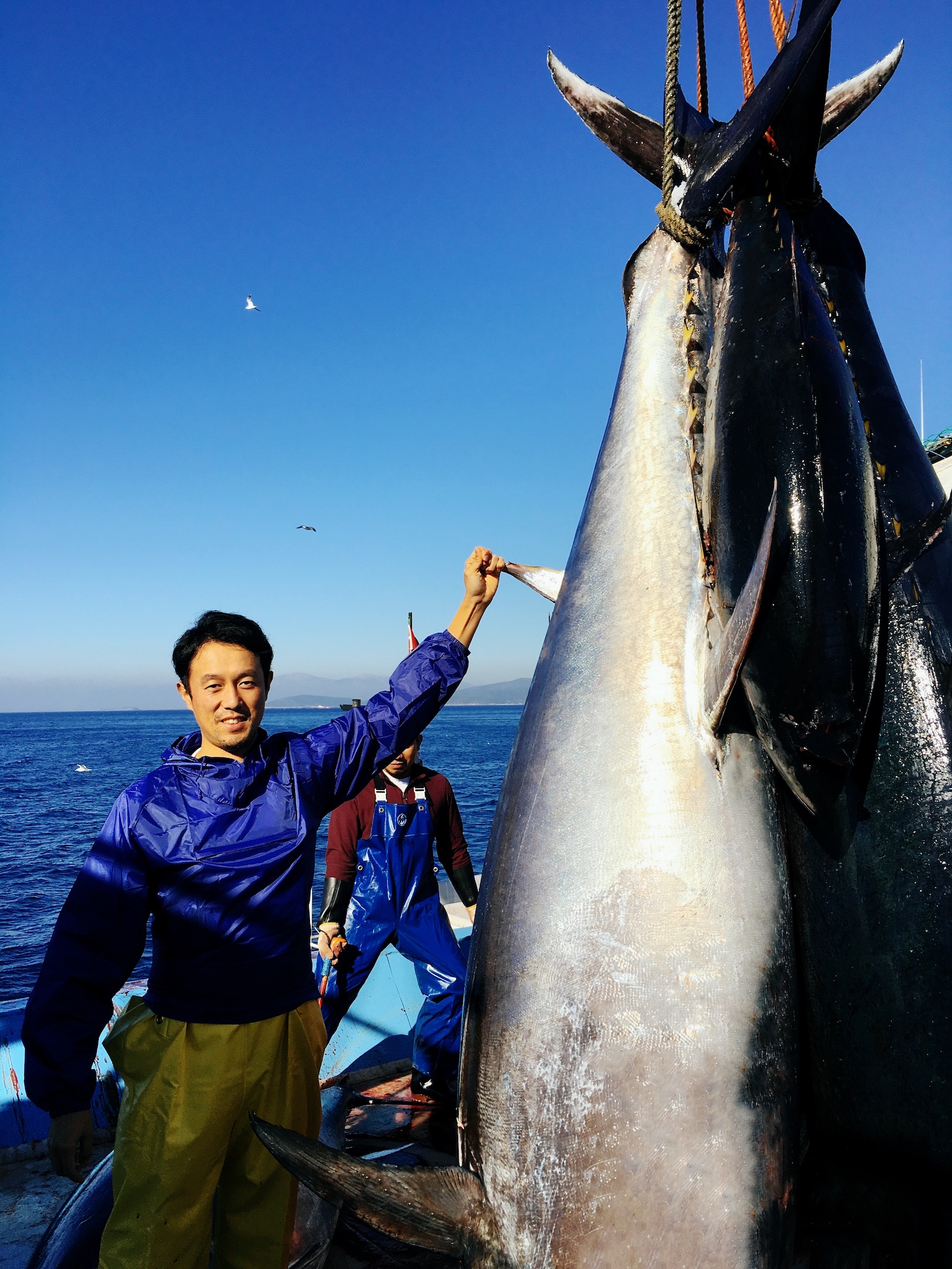
Now in its fifth year since the company started exporting maguro abroad, Misaki Meguro Suisan and its group companies own three sushi restaurants in Singapore and two in the United States that serve their maguro. The tables are almost always full and customers don’t shy away from expressing their satisfaction with the food. The menus, of course, all bear the label “maguro,” not tuna.
The company also operates four domestic restaurant brands with 18 stores mainly in Tokyo and Kanagawa, including the popular Megumi sushi bar at Shibuya Hikarie, the sushi conveyor belt chain Megumi Suisan with stores in Kinshicho and Yokohama’s Minato Mirai, and Miura Misakiko, with stores in Ueno, Enoshima, Yokohama and more. Misaki Megumi also operates a restaurant chain in Okinawa, Yazaemon, and an online shop with deliveries throughout Japan.
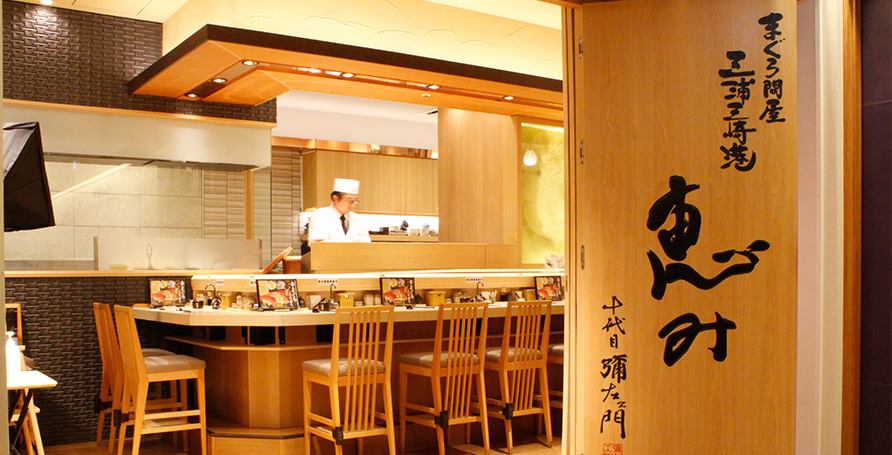
“It may take a while until maguro becomes a common term overseas, but people are gradually beginning to recognize it,” Ishibashi proudly says. “My dream is to spread our culture — the Japanese culture of our diverse food, abroad, through the fish we have been taking pride in for generations. I want to help people understand how delicious maguro is."
For more information on Misaki Megumi Suisan, visit the company’s official website here. For a full list of Misaki Megumi Suisan’s stores, see here.
This is the fourth story in Japan Today’s new Japan Business Spotlight series, which brings the spotlight on Japanese domestic companies, from small-scale family-run businesses to now worldwide corporate giants. In this series, we trace the roots of their foundations, we look at the faces behind their stories and the concepts behind their most recent innovations. Our first series introduces seven businesses based in or operating in Kanagawa Prefecture.
Read more articles from our Japan Business Spotlight: Kanagawa:
- Odakyu Electric Railways: Leading all roads to Hakone … and beyond
- Royal Blue Tea: Elevating tea culture, from Japan to the world
- Iwai Sesame Oil: The taste of one family business 160 years in the making
 Take our user survey and make your voice heard.
Take our user survey and make your voice heard.
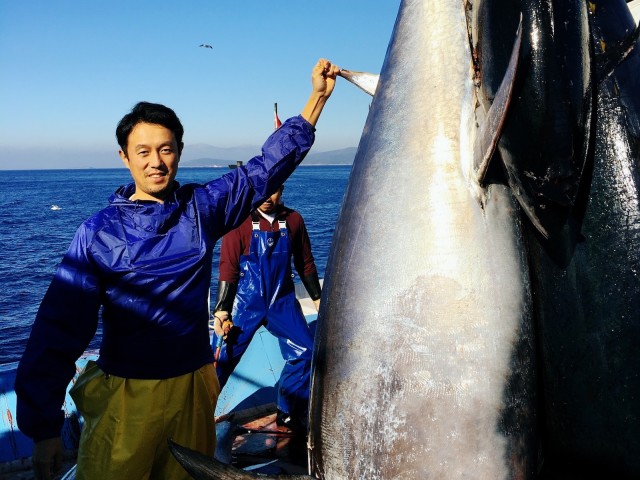












6 Comments
Login to comment
BelCanto
It's tuna, mate.
sourpuss
Maguro will forever be tuna to me. Maguro is only Maguro when it’s sushi, and it doesn’t matter where it’s from. Otherwise it’ll forever be tuna to me.
I’m sure some people will buy his sales pitch though.
Garcia Pablo Juan
This is silly. We're not talking about a dish, we're talking about an animal. Sushi is a dish that the Japanese invented, so we call it sushi. It's a Japanese invention. Japanese people didn't invent tuna.
A.M.
Toma(h)to or toma(y)to ! Nice branding.
Strangerland
IT'S NOT A TUNA! (said in Schwarznegger voice)
simon g
sushi isn't a Japanese invention at all. They marketed it well but fermented rice and fish has been a staple part of many eastern Asian countries; “mẻ” . Japan didn't invent sushi and they didn't invent Tuna. Marketing spin is just that, spin. Now where did my Kiwifruit go? Oh there, between the Stilton and Bordeaux.
.